Bola Ahmed Tinubu has been unmasked as a bigot. It must be acknowledged fully and without hesitation.
This revelation stems from the hypocritical politics he practices, particularly in Lagos State, where he reigns as the undisputed political authority.
His relentless and desperate ambition to become Nigeria’s president ultimately exposed his true nature.
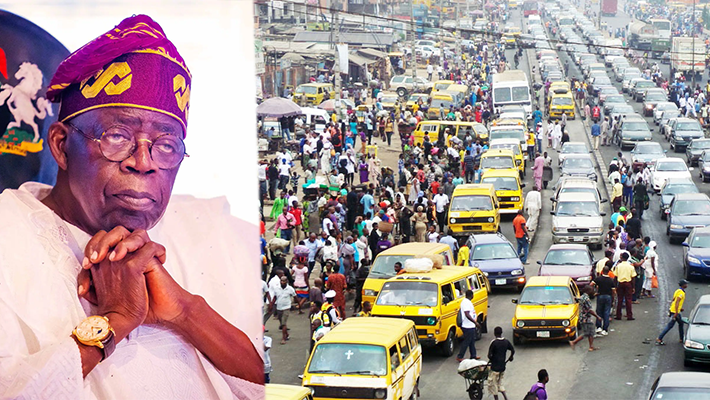
Although he has achieved his goal and now serves as the President and Commander-in-Chief of the Armed Forces of the Federal Republic of Nigeria, this victory has come at a significant cost—the destruction of the progressive image he has long cultivated.
Tinubu has consistently presented himself as a progressive, but the reality in Lagos State tells a different story.
The rise of the “Igbo Must Go” hashtag among some Yoruba residents and their supporters on social media reveals a starkly anti-progressive sentiment that contradicts the image Tinubu projects.
This is especially ironic because not every Yoruba in Lagos is a native or “Lagosian,” as the state’s indigenes proudly call themselves.
Yet, despite this divisive rhetoric, many indigenous Lagosians and broad-minded Yoruba have openly condemned the xenophobic campaign against the Igbo.
Their rejection of this divisiveness is a reassuring sign. For example, Chief Bode George has denounced the anti-Igbo movement as “arrant nonsense.”
READ ALSO: Tell Nigerians Cost, Age of New Presidential Jet – Peter Obi Tells Tinubu
“Those proposing this nonsense have no bearing or family connection to Lagos. I am saying it as a Lagosian,” he added.
Despite the escalating tensions, Bola Ahmed Tinubu, alongside the Babajide Sanwo-Olu-led Lagos State Government, remained largely silent.
It wasn’t until August 4 that Tinubu, the president, offered a tepid condemnation of the growing campaign during a lackluster nationwide address following the “End Bad Governance in Nigeria” protests. Sanwo-Olu, too, responded to the campaign with a similar indifference.
Ironically, it was Tinubu’s relentless pursuit of his political ambitions that sparked this “nonsense” in the first place. Keen observers would recall that anti-Igbo sentiment in Lagos gained momentum during the 2015 elections.
This was notably marked by the infamous threat from Oba Rilwan Akiolu of Lagos, who warned the Igbo community that they would be drowned in the lagoon if they did not vote for Akinwunmi Ambode, Tinubu’s chosen candidate for the governorship.
In the years that followed, this sentiment only intensified, manifesting today as an open display of ethnophobia against the Igbo community, drawing disturbing parallels to the xenophobic attitudes seen in South Africa against Nigerians. Not since the civil war have the Igbo faced such animosity in Lagos.
Social media is now rife with vile ethnic slurs from some Yoruba individuals and their supporters, targeting the Igbo with increasing frequency.
It might be understandable if such prejudice came only from the uneducated or unenlightened, but unfortunately, even the educated elite have joined in amplifying this rhetoric.
It’s crucial to emphasize that at the root of this hostility lies Tinubu’s ambition, which he has now achieved.
There’s plenty of evidence to support this claim. Tinubu’s control over Lagos politics is undeniable. He served as governor for two terms, maintaining an iron grip on the state’s affairs ever since. No political figure in Lagos can rise without his blessing.
Babatunde Fashola, Akinwunmi Ambode, and the current governor, Sanwo-Olu, all owe their positions to him. Ambode’s attempt to assert independence led to his political downfall, leaving him ostracized in Lagos politics.
Some attribute Tinubu’s enduring influence to his supposed mastery of political strategy, yet his fear of losing control over Lagos is palpable.
The Igbo community in Lagos represents a significant voting bloc, and Tinubu recognizes the potential threat they pose to his dominance.
The possibility that this bloc could be leveraged by an opponent or rival party in Lagos is enough to unsettle him and his allies.
But for someone reputed as a political strategist, Tinubu need not resort to fear. Instead of using threats, he could have sought to win over the Igbo voters. However, he has chosen to deploy intimidation as his primary tactic.
What kind of progressive leader does that?
When the Oba of Lagos issued his threat against the Igbo, Tinubu did not publicly disapprove.
His silence was widely interpreted as approval, emboldening those harboring latent bigotry to come forward. The anti-Igbo sentiment gained even more traction during the 2023 elections, with Tinubu running as the APC’s presidential candidate.
As he faced the political battle of his life, individuals like Bayo Onanuga, his spokesperson, unleashed a barrage of hate-laden comments against the Igbo, proudly refusing to apologize.
These reckless statements brought to mind the origins of the Rwandan genocide, which was similarly fueled by ethnic hate speech.
Upon becoming president, Tinubu appointed Onanuga as his government’s spokesperson, effectively rewarding him for his divisive rhetoric.
Anti-Igbo narratives often suggest that the Igbo community in Lagos interferes in local politics beyond what is acceptable in a democracy, but this is far from the truth. The reality is that the Igbo population in Lagos is second only to the indigenous Yoruba, giving them significant influence in elections.
Tinubu’s fears are rooted in previous voting patterns, particularly in 2015 when his party was not the preferred choice among the Igbo in Lagos. The APC lost the presidential vote in Lagos State, and many believe the party was on the verge of a greater defeat in the governorship election had it not been for manipulations, including the use of the Oro traditional cult to suppress Igbo votes.
The desperation to suppress the Igbo vote led to the deployment of street urchins, thugs, and cultists, with even some educated elites joining the chorus of anti-Igbo rhetoric. In their frenzy, they showed little concern for the damage to Lagos’s image, focusing solely on securing Tinubu’s interests.
One social media account, @Lagospedia on X (formerly Twitter), took Onanuga’s hate propaganda to new heights, fervently promoting Igbophobia. This account and others like it, such as @Lagospidia, @Lagos_IBILE, and @YorubaGuard, have been reportedly deactivated, but their sole mission was clear: to incite hatred against the Igbo community in Lagos. On July 27, 2024, @Lagospedia’s posts became particularly alarming, calling for a xenophobic protest against the Igbo from August 20 to 30, under the hashtag #IgboMustGo.
Governor Sanwo-Olu’s response was weak, issuing a statement on August 1 urging Lagosians to ignore such posts. Yet, he should be acutely aware that it is in his Lagos where Igbo people and their businesses have repeatedly been attacked without consequence.
The agenda to divide the Yoruba and Igbo communities in Lagos, and by extension the entire southwest, is being aggressively pursued, with tacit encouragement from Tinubu.
Authorities may choose to ignore what is happening, but it’s important to note that such expressions of ethnic hatred threaten the constitutional right of Nigerians to live freely anywhere in the country.
Today it’s the Igbo; tomorrow it could be any other group that insists on exercising its right to vote without intimidation, as long as Tinubu’s influence prevails.
Ultimately, these events have exposed the true nature of Tinubu’s politics. Despite the long-held belief in his progressive ideals, his actions tell a different story. Tinubu’s brand of politics has been revealed for what it is, and neither he nor his protégés can honestly claim to represent progressivism.
The deception surrounding Tinubu’s commitment to progressive principles has persisted for too long. As Bob Marley famously said, “You can fool some people sometimes, but you can’t fool all the people all the time.” The unmasking of Tinubu, though delayed by his skillful manipulation of his public image, has finally come. If the term “progressive” still holds any meaning in democratic politics, then Tinubu, now President of Nigeria, should no longer be associated with it. His political methods, driven by desperation, are a dangerous departure from the ideals of unity and progress that the nation’s leaders claim to uphold.
The author is a lawyer and social commentator
Follow the Parallel Facts channel on WhatsApp: https://whatsapp.com/channel/0029VaCQSAoHgZWiDjR3Kn2E




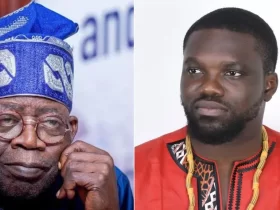
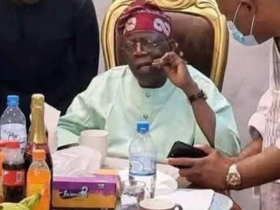

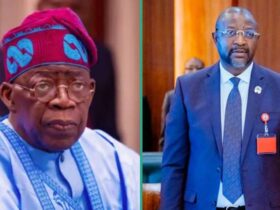
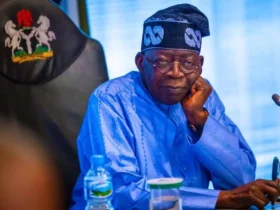
Leave a Reply